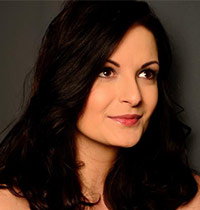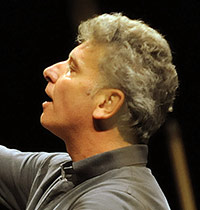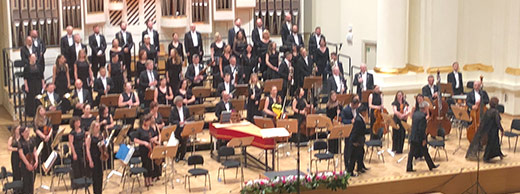‘Boredom at the Paris Opéra has long been a truism. A tasteful, aristocratic boredom, perhaps, but boredom is boredom and, even at the risk of compromising the dignity of both audience and opera house, the authors of Le Philtre have sought to find a cure for this and entertain the stalls at last. Grandiose poems, magnificent stagings, the din of brass instruments were all suddenly replaced by joyful chords, a cheerful libretto and rural backdrops.’
– Revue des théâtres, 1831
Daniel-François-Esprit AUBER (1782–1871)
Le Philtre
Opera in two acts
Libretto by Eugène Scribe
Sung in French
Luiza Fatyol, Adina Vilichi, Sopranos • Patrick Kabongo, TenorEmmanuel Franco, Baritone • Eugenio Di Lieto, Bass
Kraków Philharmonic Chorus and Orchestra • Luciano Acocella
The two leading operatic composers of their time were Rossini and Auber, one now fêted, the other largely overlooked. In 1831 Auber and his long-standing librettist Eugène Scribe produced Le Philtre, which took the concept of petit opéra to the extreme, even outdoing Rossini’s Le Comte Ory in depicting a rural setting peopled not with Arcadian shepherds but with ordinary country folk. Auber’s Franco-Italian style can be heard in the work’s ensembles, while elsewhere the opera shimmers with rich arias, buffo elements and delightful cavatinas. Le Philtre was an unalloyed success receiving 243 performances and inspired Donizetti’s L’elisir d’amore.
Trio and Finale: C'est un ordre du capitaine
tenor
baritone
bass
soprano
soprano
Le Maçon • Leicester
Le Séjour militaire • La Neige
La Bergère châtelaine
Czech Chamber Philharmonic Orchestra Pardubice • Salvi
– Fanfare
Le Concert à la cour • Fiorella
Julie • Léocadie • Couvin
Violin Concerto
Čepická • Czech Chamber Philharmonic Pardubice • Salvi
– MusicWeb International
La Barcarolle • Les Chaperon blancs
Lestocq • La Muette de Portici
Le Serment • Rêve d'amour
Moravian Philharmonic Orchestra • Salvi
– The Light Music Society
Le Duc d'Olonne • Fra Diavolo
Le Philtre • Actéon
Divertissement de Versailles
Moravian Philharmonic Orchestra • Salvi
– Fanfare
Zanetta:
Overtures and Entr’actes
Zerline:
Overture • Entr’actes • Airs de ballet
Janáček Philharmonic Orchestra • Salvi
– Gramophone
































![AUBER, D.-F.: Philtre (Le) [Opera] AUBER, D.-F.: Philtre (Le) [Opera]](https://cdn.naxos.com/sharedfiles/Images/cds/hires/8.660514-15.jpg)








